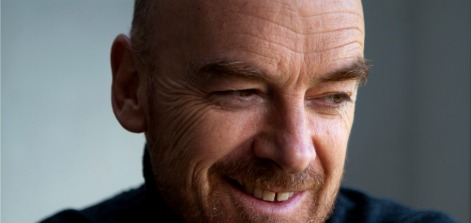Rhidian Brook is an author and regular contributor to Thought for the Day on BBC Radio 4. Here, he tells us about his grandfather's act of forgiveness after WWII that went against the popular mood at the time, the faith it required, and the bridges it built.
Rhidian Brook
Faith, forgiveness and building bridges
Posted on: Thu 07-Aug-14 15:19:13
(7 comments )
In 1945, when forgiving Germans was anathema, my grandfather Walter Brook was governor of a district outside Hamburg and responsible for its reconstruction as well as the feeding, re-housing and de-nazification of thousands of displaced people. It was a formidable task. Of the zones, the British was the most devastated. It was said "the American’s got the view, the French the wine, and the Brits the ruins." More bombs were dropped on Hamburg in a weekend than on London in the entire war.
A shortage of housing led the British to requisition what buildings remained standing to accommodate their own families. Germans were put in billets. But when my grandfather went to requisition a house for himself, he did something radical and unique: rather than have the family ejected he let them stay, declaring the house big enough to share. Just one year on from the war, a British and German family lived under the same roof and continued to do so for the next five years.
My grandfather's decision was counter to the mood of the times. Europe was still raw with a desire for revenge and Germans were seen as guilty and deserving of punishment. The appalling discovery of the concentration camps only compounded this. My grandfather was perceived as soft-pedalling, not only by his fellow servicemen but, initially, by grandmother who, like most people, had adopted Atlee's directive to maintain "a cold and dignified aloofness towards Germans at all times."
Forgiveness always costs something. It might mean accepting a personal loss, or dropping our right to be paid back. It can also open us up to the anger of those who demand their pound of flesh. But reconciliation is a much riskier business than retribution.
I never met my grandfather, but I have learned from my father and uncle and others that he was a humane and egalitarian sort. His decision to share the house was in keeping with his nature. In the first world war he had fought with Lawrence of Arabia. The two became friends and kept up a correspondence. I suspect something of Lawrence's "preference for the natives over the occupying forces" influenced him.
The war and the devastation he encountered when he arrived in Hamburg shocked him. Forgiveness always costs something. It might mean accepting a personal loss, or dropping our right to be paid back. It can also open us up to the anger of those who demand their pound of flesh. But reconciliation is a much riskier business than retribution. Revenge brings instant results and momentary gratification; forgiveness requires faith in an outcome we can't always see. And as so much of history and present strife prove, we are trapped in an endless cycle of destruction without it.
Two years ago, I went back to Germany with my father to see the house and meet the German brother and sister he'd shared it with. He was unusually nervous, worried that they wouldn't remember things with the same benevolence. Within minutes of the reunion his fears lifted. Their fondness towards him was obvious. Later that evening they told us how grateful they had been to stay in the house. They even had a nickname for my grandfather. They called him "Dei Brucke." In German, the surname Brook means bridge.
Post your stories of forgiveness below for the chance to win one of five signed copy of Rhidian's book, The Aftermath, which is inspired by his grandfather's decision and available from Amazon.



